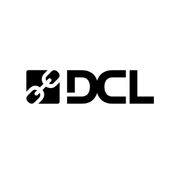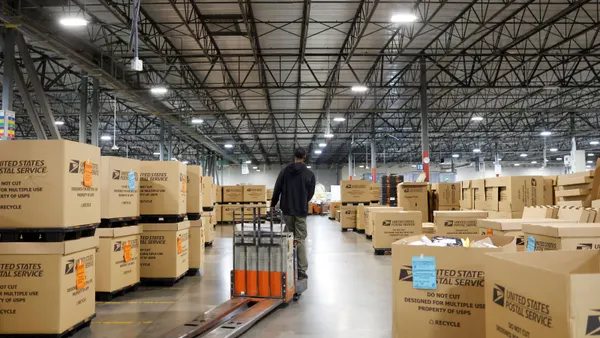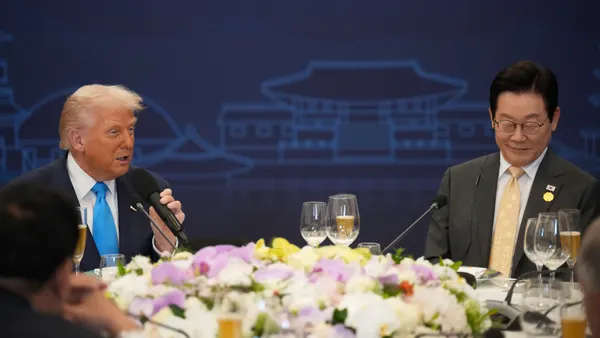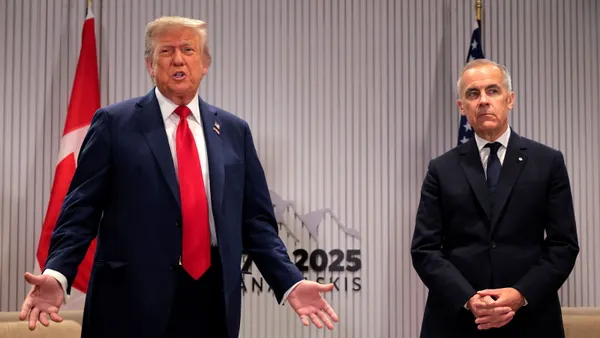Dive Brief:
- Republican operatives set out to raise between $15 million and $20 million to fund a lobbying group intended to get the United States-Mexico-Canada Agreement (USMCA) ratified by the U.S. Congress, Axios reported.
- At least six Democrats have already come out against the deal on the grounds it's too similar to its predecessor, the North American Free Trade Agreement (NAFTA), stating the USMCA doesn't go far enough to keep U.S. companies from outsourcing labor, among other concerns. Some Republicans also say there is still work to do get the USMCA across the finish line.
- Experts say Mexico and Canada will be looking to the U.S. to ratify the deal first. Canada's Foreign Minister Chrystia Freeland said her country is not interested in reopening negotiations, despite supporting some of the changes Democrats and Republicans are pushing. Canadian Prime Minister Justin Trudeau has made similar statements, while still supporting ratification.
Dive Insight:
The formation of this lobbying group, fundraising for which reportedly started at the beginning of the year, is evidence that Republicans do not think USMCA ratification is going to come easy. As the year goes on, the opposition is beginning to solidify.
"I agree with the president that NAFTA has failed working Americans, but his NAFTA 2.0 proposal is more of the same," said Rep. Jared Golden, a Democrat from Maine, in a statement. In addition to outsourcing, Democrats have also brought up prescription drug prices, labor and environmental provisions as issues that need stronger provisions in the deal.
"As it stands, this deal locks in monopoly rights for Big Pharma, effectively ensuring that drug prices will remain high by providing giveaways to pharmaceutical companies. If the President is serious about reducing the cost of prescription drugs, this issue must be addressed. This provision—along with strong, enforceable labor and environmental provisions that ensure workers are paid a fair wage and environmental concerns are addressed—will require changes to the core of the agreement," said Democratic Rep. Rosa DeLauro of Connecticut.
The Republican group's funding comes from the automotive, agricultural, pharmaceutical and oil and gas industries along with Republican political donors, according to Axios. And while these industries would like to see the deal ratified as soon as possible, opposition doesn't break cleanly on party lines.
Republican Rep. Kevin Brady of Texas told the Washington Examiner Mexico and Canada need to be exempted from steel and aluminum tariffs before the deal can go through — a position shared by several Republicans and Canadian officials.












